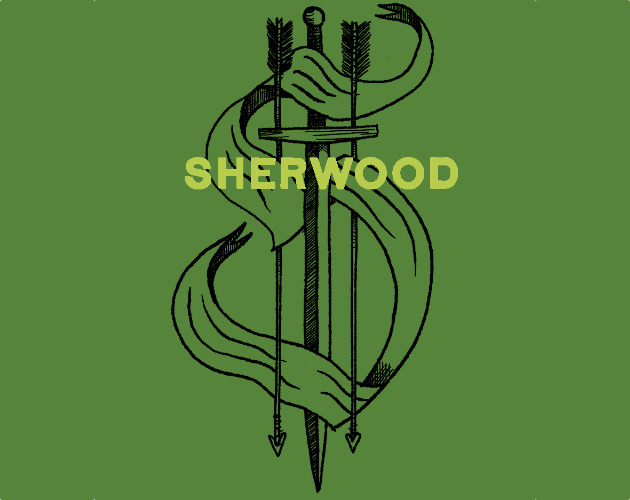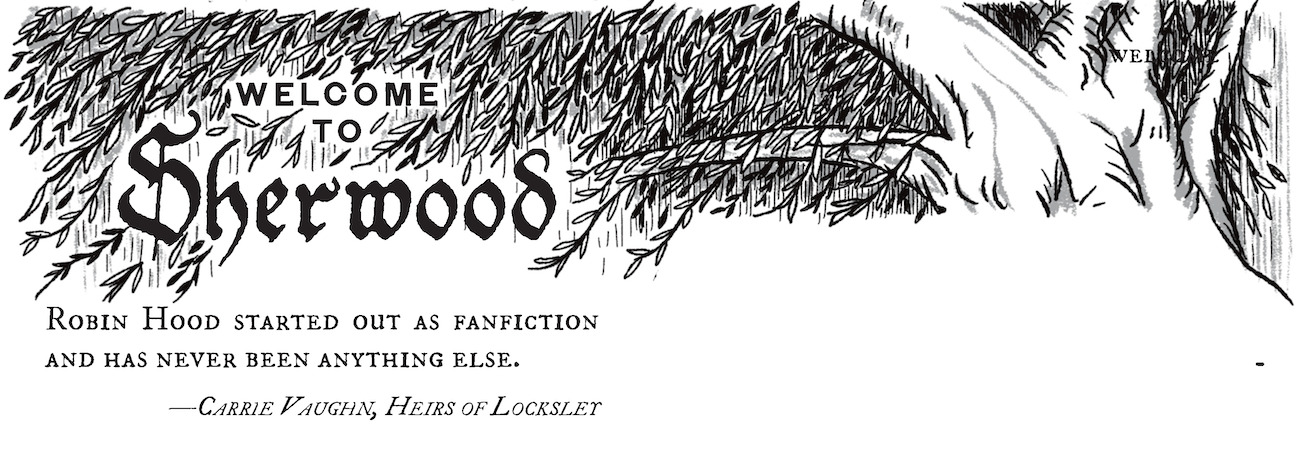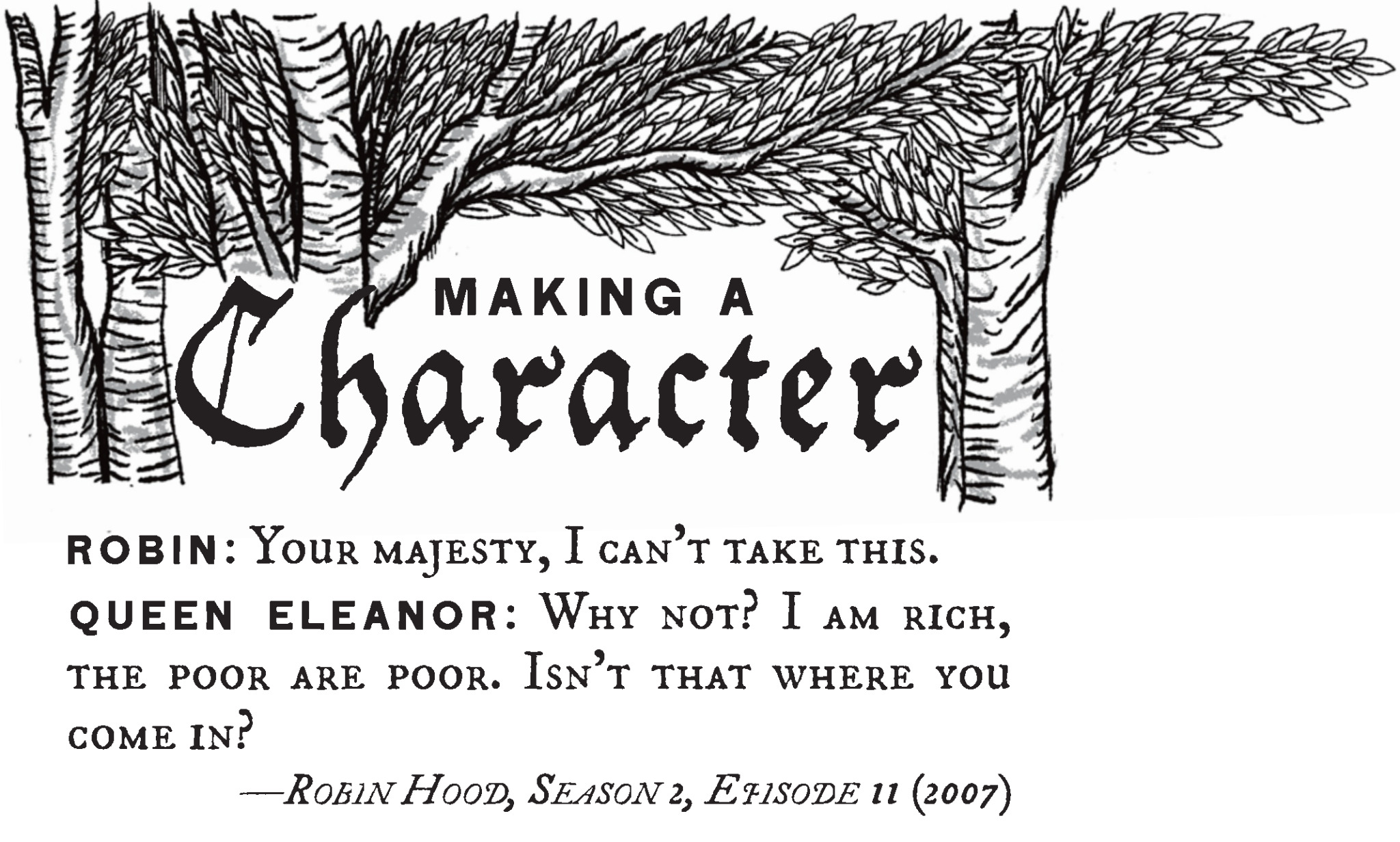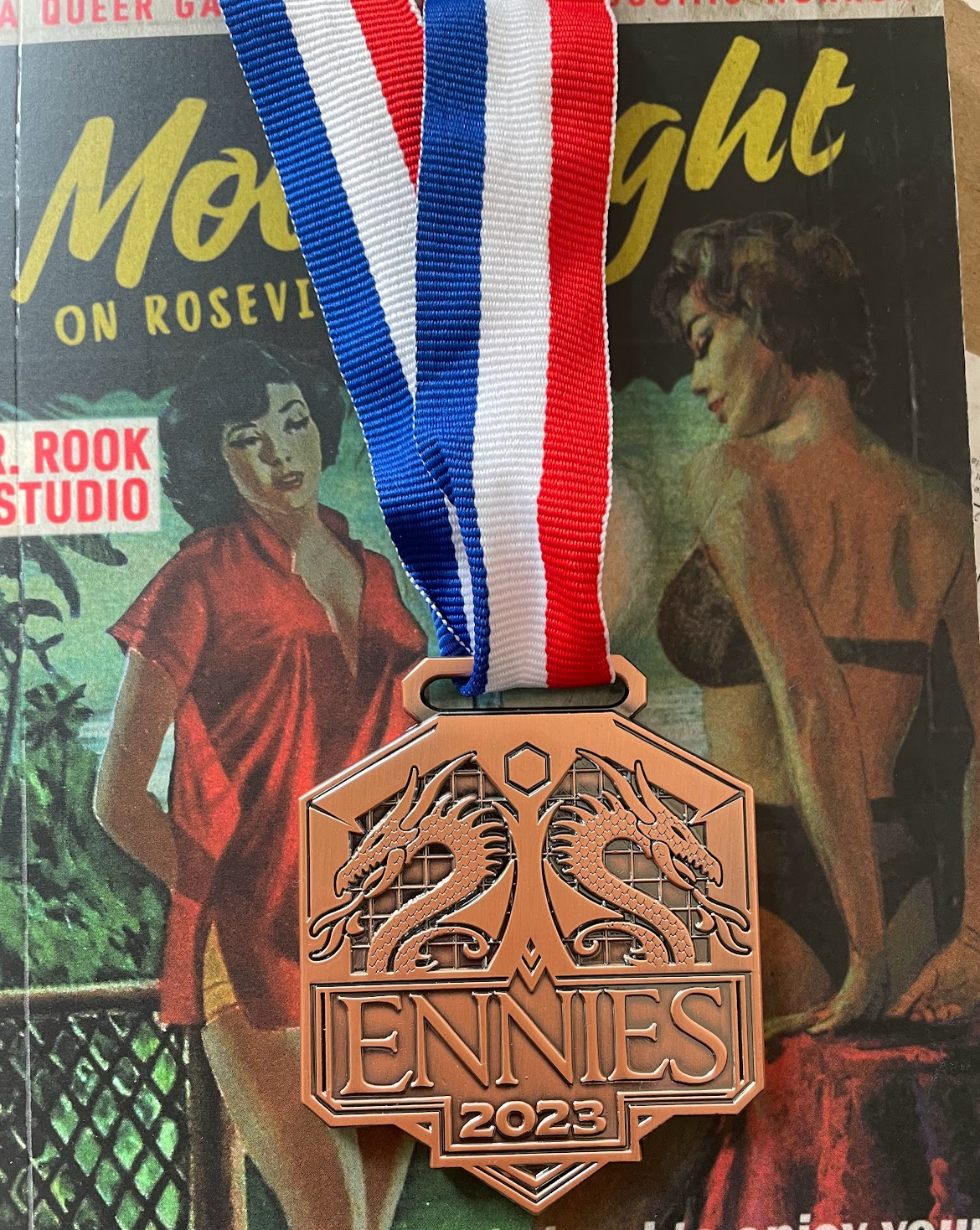Sherwood Tour: Character Creation

Found out this morning that Sherwood has sold 72 copies over the three weeks it's been live on DTRPG and Itch. With physical copies arriving at Spear Witch this week, I figured this would be a good day for a Sherwood tour while also admiring Eric Swanson's work on these chapter headers. Today, we'll focus on character creation.

As I was winding down work on Enoch's Wake, I wanted to get a chance to reconsider and rethink how that attempt to do my own version of the core rules of Traveller. It seemed a good fit for my love of the Robin Hood legend, which I'd revisited during the 2020 and 2021 lockdowns. As omicron threw the world back into partial lockdown, it gave me an excuse to immerse myself in movies, novels, Middle English balladry, medieval and Victorian romances, and even a few scholarly works.
Sherwood keeps the lightweight Traveller-inspired 2d6 mechanics I'd used for EW, but adjusts the four attributes and works with them in new ways. Before we start with character creation, though, lets look at the principles:
- Be an outlaw! Even if a sheriff never declared your character a wolf’s head, you do not need to worry about what a typical medieval villager or aristocrat would do or think. The forest is too grand a place to for polite society’s petty anxieties about sexuality, gender, and propriety. Make your character whomever you want them to be.
- Fight for something! Struggle for justice, scheme for revenge, plot for personal gain. Set some goals for your outlaw and your band that are bigger, wilder, and more wonderful than your character’s former, respectable world allowed.
- Dabble with magic! While the traditional Robin Hood ballads do not foreground the magical and mysterious, plenty of Robin Hood novels, movies, and television shows have, and many other medieval outlaws stories included curses, prophecies, spellcraft, fey spirits, and even dragons.
- Ditch the ethnic conflicts! The Saxon-Norman conflict was tacked on to the Robin Hood legend and outlaw tradition in the 19th century.
- Fuck the true king! Waiting for King Richard to return was a very late addition to the Robin Hood legend. In the original ballads, kings were occasionally useful tools if the outlaws could get their help against officials and aristocrats.
- Embrace diversity! While bigots who know little of history will complain, avoid confining yourselves to the biased and discredited accounts of historians from well over a century ago. Go into the forest and find the range of people living free of white supremacy, religious bigotry, and cis-gender heterosexuality.

People laugh about dying in character creation now, but Traveller was the first time we saw character creation as a stand-alone mini-game with push-your-luck mechanics. If you died, you could try to make the same decisions again but weren't likely to get the same outcome. In EW, I'd toyed with an option I borrowed from several versions of Cepheus, a family of Traveller retroclones and near clones: if things went badly, you were thrown out of your chosen job.
In Sherwood, though, all lifepaths and careers you can choose from are heading to the same place: outlaw life in the Greenwood. The push-your-luck element here is how long you could stay in the wide world before scandal, misdemeanors, or being officially declared an outlaw (and thus having no legal existence).
Attributes
Like EW, Sherwood uses four attributes: Endurance, Luck, Willpower, and Wits. Like Traveller, they can take damage and like Traveller's psi attribute, can be spent down for various effects, but they aren't used to directly modify most rolls. (And be careful how you spend them: while Skill Checks are 2d6 aiming at the magic target 8, Saving Throws are 2d6 equal or under an attribute's current value.) They're rolled 2d6 straight down, though you also roll one wildcard. You can replace any attribute with the wildcard number (if you want to) and then swap any two attribute scores.
Background Abilities
As in EW, everyone gets two Background Abilities. They can increase your ability scores, give you a small collection of starting skills, designate your character an aristocrat, or give you access to sorcery and arcane talents.
Careers
Like Traveller, Enoch's Wake, Cepheus, and similar games, your character has a career. Sherwood gives you five choices that will ultimately lead to the woods:
- Hermits might be Christians or just living in the hermitages for seclusion and study (until the hermitages were disbanded and integrated into traditional religious communities). If you didn't take arcane talents as Background Abilities, this is your one chance to learn them. Inspired by Friar Tuck, anyone can become a Hermit.
- Traders require a quick test to join, and then decide whether they did their mercantile travels on land or sea (and if they made any secret studies while traveling). Inspired by the traders and merchants who work with the outlaws in the Hannah Weinstein-produced, CPUSA-funded, and Richard Greene-lead Adventures of Robin Hood TV series.
- Performer, a background I keep coming back to for fantasy or medieval games, learn a bit from their time traveling, a bit from their time playing in inns across the land, and a bit from studying old stories. Obviously inspired by various versions of Alan-A-Dale, but also by some versions of Little John that had him living as a festival wrestling performer before joining Robin.
- Laborer is a background anyone can take as long as they aren't aristocrats. They learn their skills from their farm and/or town trades as well as by spending their evenings in roadside taverns and inns. Inspired by Robin's peasant, yeoman, and commoner followers in numerous sources.
- Cavaliers is a background anyone can try to get into (though those born as aristocrats are never refused). Inspired by the later ballads and novels in which Robin Hood and many of his followers were aristocrats, field sports, jousting, and time in various courts provide most of their skills.
There's two other backgrounds that always start as condemned outlaws who eventually join Robin's bands. The Young Outlaw starts the game as an 18 year old with few skills (a simple character creation option) and the Notorious Criminal who chooses their skills based on the criminal profession they once pursued. These were inspired by the ITV Robin of Sherwood versions of Much the Miller's Son and Will Scarlet as well as the versions of both characters in Jennifer Roberson's Marian novels, as well as other Medieval ballads such as Adam Bell.
Finally, once the career is fleshed out, there's
Equipment and the Band
While everyone has some personal equipment (like a weapon), most other items are held in common. Rather than keep an extensive inventory of what members of the band are carrying on an adventure, characters predetermine their encumbrance or load and roll against their group's two shared stats: Resources (to determine what they have) and Legend (to determine who they know and who'd want to help them). The clever group can figure out how to get what they want or need with either.
Next up: Rules and Arcana (coming sometime before Pax U next weekend).

Comments
Post a Comment